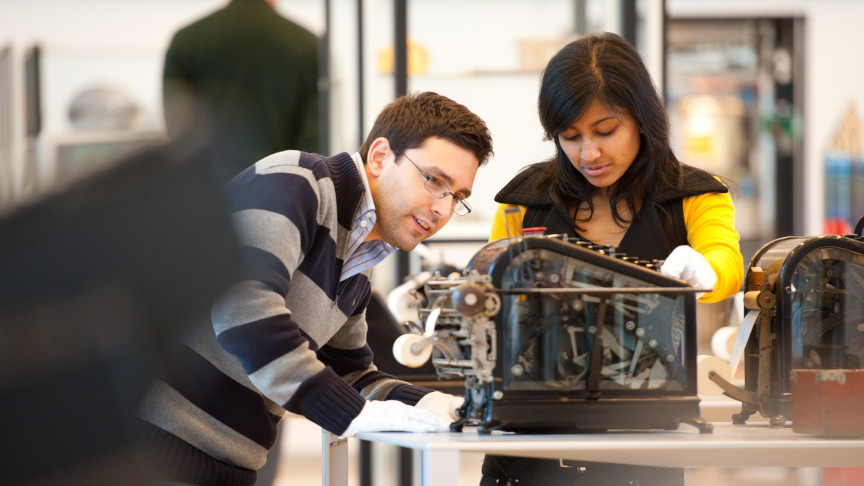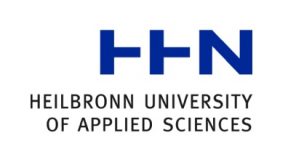PhD Students

A doctorate is the highest academic degree that a university can award. In Germany, studying for a doctorate primarily means working intensely on a specific subject or research project for a long period of time. The length of time a doctorate takes also varies. Three to five years are typical.
Two ways to do your PhD
If you decide to do a doctorate, you can choose between different forms of study. Depending on your discipline, research area, personal circumstances and formal qualifications, there are two different paths:
- Individual doctorate
The individual doctorate is based on independent research carried out alone under the supervision of one professor. This is the traditional path followed by over three quarters of all doctoral students in Germany. - Structured PhD programmes
These programmes offer a form of study similar to that found in English-speaking countries. You will be supervised by a team and will attend courses, lectures and seminars together with other doctoral students.
Find your individual doctorate
The “traditional” or “individual” path to a PhD remains the most common in Germany. An individual doctorate involves a thesis or dissertation that is produced under the supervision of one professor. This form of PhD study offers a great deal of flexibility, but demands a high degree of personal initiative and responsibility.
How to find your PhD supervisor
In Germany there is no central admissions or selection office for doctoral students. Therefore, your first step is to find a suitable professor who is willing to be your supervisor.
One way to find a supervisor is to look for a university institute that matches your area of research. The following online search engines might help you find a suitable supervisor:
GERiT is a website containing information about more than 29,000 research institutions in Germany. GERiT allows the user to search easily by location or subject. It provides all the information needed to choose an institution at which to research, study or do a doctorate.
www.gerit.org
PhDGermany publishes PhD openings in Germany that specifically target international applicants. Accordingly, in most cases the working language is English. Fluent knowledge of German is only required for certain special positions. PhDGermany helps you find the right PhD opening or supervisor for your doctoral thesis and assists you with the online application process.
www.phdgermany.de
This database provides up-to-date information from universities about doctoral opportunities in Germany. The search engine enables you to carry out targeted searches on the basis of departments, admission requirements and form of doctoral thesis.
www.higher-education-compass.de
Furthermore, your contacts with your professors or previous university could help direct you to a suitable department or potential supervisor in Germany.
It is also helpful to attend academic conferences in your own subject area. There you will be able to exchange information and make contacts – and perhaps even find a future PhD supervisor.
Further information
Many universities, non-university research institutes and companies advertise their job offers on their websites or in online job portals. On our website you will find tips and links to research-related vacancies in Germany: Find your PhD position (auf Englisch)
Many companies, universities and non- university research establishments publish their PhD openings and job vacancies in online job portals or on their websites. Here you will find some tips and links on where to search for research-related job offers in Germany:
PhD Germany – database for doctoral positions
PhDGermany is a database for doctoral positions and research opportunities in Germany. It can help you to find the right PhD opening or supervisor for your doctoral thesis.
www.phdgermany.de
Find universities – doctoral studies
Students interested in doing a doctorate should contact departments or directly get in touch with academics and researchers at the institution who are qualified to supervise a doctoral thesis (dissertation). You can search the Higher Education Compass database according to various criteria: universities, subjects, subject areas, admissions rules and dissertation rules.
www.higher-education-compass.de
GERiT – German Research Institutions
GERiT is a website containing information about more than 29,000 research institutions in Germany. GERiT allows the user to search easily by location or subject. It provides all the information needed to choose an institution at which to research, study or do a doctorate.
www.gerit.org
International doctoral programme database
Are you interested in an international doctoral programme in Germany? This German Academic Exchange Service (DAAD) database presents a selection of roughly 250 international doctoral programmes in Germany. The database can be searched according to different criteria.
www.daad.de/international-programmes
DFG-funded research training groups
Research training groups are also funded by the Deutsche Forschungsgemeinschaft (German Research Foundation, DFG) for a period of up to nine years. Their key emphasis is on the qualification of doctoral researchers within the framework of a focused research programme and a structured training strategy.
www.dfg.de > Current Research Training Groups
Helmholtz Research Schools, Colleges and Graduate Schools
The Helmholtz Association is Germany’s largest scientific organisation. In collaboration with various institutions of higher education, Helmholtz Association research centres have established structured PhD programmes under the auspices of Helmholtz Graduate Schools, Helmholtz Research Schools and Colleges.
www.helmholtz.de > PhD Candidates
Leibniz Graduate Schools
The Leibniz Association connects almost 100 research institutes that conduct problem-oriented research and provide scientific infrastructure of national and international importance. Together with universities they run structured PhD programmes in Leibniz Graduate Schools.
www.leibniz-association.eu > Leibniz Graduate Schools
International Max Planck Research Schools
The Max Planck Society specialises in innovative basic research and its institutes are able to offer up-and-coming researchers excellent infrastructure and support. The website lists the programmes available at International Max Planck Research Schools (IMPRS).
www.mpg.de > International Max Planck Research Schools
Max Planck Schools
In Germany, the best researchers in a specific field are often work at different universities and non-university research institutions spread throughout the country. The Max Planck Schools serve as hubs which gather this distributed knowledge. Here, the brightest minds in their fields have come together from within the scientific community to interconnect in faculties made up of active researchers. Students gain access to these unique networks, learn in close personal exchange from leaders in their fields and their peers, and enjoy access to outstanding infrastructure. Currently, three Schools are operating in the fields of Cognition, Matter to Life, and Photonics.
www.maxplanckschools.de
For detailed information please visit the Research in Germany website on how to obtain your doctorate in Germany.

